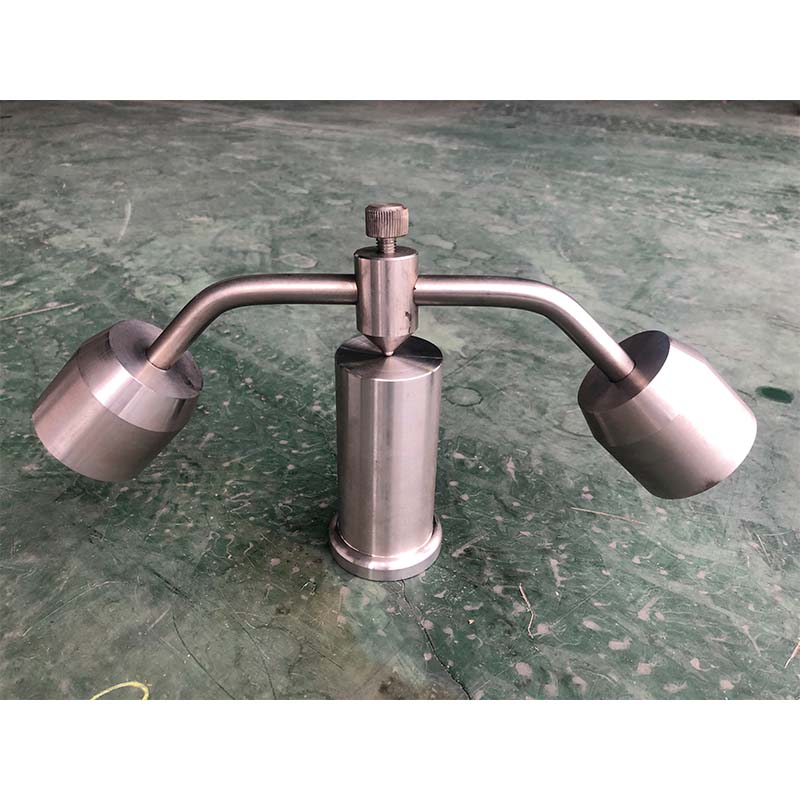Custom Fixtures for Tensile Testing Machines to Enhance Performance and Accuracy
Custom Clamps for Tensile Testers Enhancing Precision and Versatility in Material Testing
In the realm of material testing, the tensile test is crucial for evaluating the mechanical properties of various materials. Understanding how materials behave under tension helps engineers and designers make informed decisions during the product development process. A vital component of conducting tensile tests is the use of clamps, which are responsible for securely holding the specimen in place during testing. While standard clamps are available, custom clamps for tensile testers are increasingly being recognized for their ability to enhance precision, versatility, and overall efficiency of testing operations.
The Importance of Custom Clamps
Standard clamps may meet general requirements; however, they often fall short when it comes to specific materials or testing conditions. Different materials exhibit unique behaviors under tensile stress, and their shapes, sizes, and surface characteristics can vary significantly. Custom clamps take these factors into consideration, allowing for a more tailored approach that ensures better grip and minimizes slippage or specimen damage.
Custom clamps are designed to accommodate a wide range of material types, from ductile metals to brittle plastics and composites. This versatility is particularly beneficial in research settings or industries where diverse materials are tested regularly. By having clamps specifically designed for each material type or geometry, testing can be performed more accurately, yielding reliable, repeatable results.
Enhancing Precision
One of the primary advantages of custom clamps is the enhanced precision they offer during tensile tests. Standard clamps might not provide an adequate grip on all specimen geometries or surface conditions, leading to errors in data collection. A custom clamp designed for a specific material can be engineered to create an optimal contact surface, enabling uniform force distribution and reducing the likelihood of premature failure due to misalignment or slippage.
For instance, when testing materials with irregular shapes or delicate surfaces, such as thin films or foam, a custom clamp can provide a secure hold without introducing damage that could alter the test results. This precise grip is essential for obtaining accurate measurements of tensile strength, elongation, and other critical material properties.
Reducing Specimen Damage
custom clamps for tensile testers

In tensile testing, protecting the integrity of the specimen is essential for accurate results. Custom clamps can be designed with specific materials and features to minimize damage during testing. For example, clamps lined with soft, non-abrasive materials can prevent the specimen from being marred or cut during gripping.
Moreover, custom clamps can also be tailored to provide adequate pressure without over-stressing the specimen. This balance is particularly important for sensitive materials where even slight variations in force application could lead to premature failure or misleading results.
Improving Workflow Efficiency
In addition to precision and specimen integrity, custom clamps can significantly streamline the testing process. By having clamps specifically designed for different materials, operators can switch between setups quickly and efficiently, reducing downtime and increasing productivity.
Custom clamps can also be integrated with automatic tensile testers, allowing for a more seamless testing operation. With the ability to quickly adapt to various testing scenarios, laboratories can enhance their throughput and responsiveness to changing testing requirements, ultimately contributing to greater operational flexibility.
Conclusion
As industries continue to innovate and evolve, the demand for effective materials testing will only intensify. Custom clamps for tensile testers serve as an essential tool in this endeavor, enabling more precise, reliable, and efficient testing processes. These clamps not only enhance the capability to test a wide array of materials but also protect specimen integrity and improve laboratory workflows.
For companies aiming to stay at the forefront of material technology, investing in custom clamps for tensile testers is a strategic move. By ensuring accuracy and reliability in testing, organizations can make better-informed design choices, ultimately leading to superior products and greater competitive advantage in the market. As the complexity of materials increases, the role of custom clamps will undoubtedly become even more critical in the future of materials science and engineering.
-
Why the Conductor Resistance Constant Temperature Measurement Machine Redefines Precision
NewsJun.20,2025
-
Reliable Testing Starts Here: Why the High Insulation Resistance Measuring Instrument Is a Must-Have
NewsJun.20,2025
-
Flexible Cable Flexing Test Equipment: The Precision Standard for Cable Durability and Performance Testing
NewsJun.20,2025
-
Digital Measurement Projector: Precision Visualization for Modern Manufacturing
NewsJun.20,2025
-
Computer Control Electronic Tensile Tester: Precision and Power for the Modern Metal Industry
NewsJun.20,2025
-
Cable Spark Tester: Your Ultimate Insulation Assurance for Wire and Cable Testing
NewsJun.20,2025
 Copyright © 2025 Hebei Fangyuan Instrument & Equipment Co.,Ltd. All Rights Reserved. Sitemap | Privacy Policy
Copyright © 2025 Hebei Fangyuan Instrument & Equipment Co.,Ltd. All Rights Reserved. Sitemap | Privacy Policy
